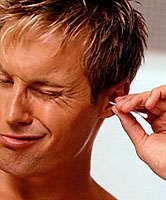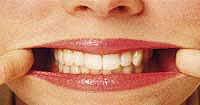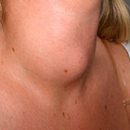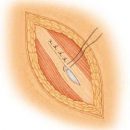Tablets typically prescribe a doctor; we drink herbs more often at our discretion. But you need to know what to avoid: the combination of some of herbs and drugs may be unsuccessful and even dangerous.
Content
Himself phytotherapy
Today, biodenders with medicinal plants are all
More popular. They are sold without a recipe, and we prescribe them yourself,
Do not consciously with the doctor. Why not – This is not «chemistry», but «Hose»!
But the actors contained in the roots and herbs, nothing
fundamentally do not differ from the substances obtained by industrial
method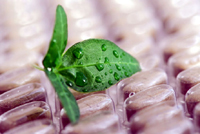 M. Both – Powerful weapons, and applied together, they
M. Both – Powerful weapons, and applied together, they
sometimes generate an unforeseen reaction.
Suppose a 50-year-old man decided to take a ginkgo biloba extract
For the prevention of age-degraded memory. At the same time, the doctor is not
aware of this, prescribed acetylsalicylic acid from
Heart problems. The patient has conscientiously accepted both – but
After a few months, the case ended in stroke…How to avoid a similar scenario?
Firstly, Warn
Doctor About all herbs and biodevices that you take. We
Tell about the properties of some popular plants, but certain
Side effects are almost all.
Secondly,
not bad
Instruct and consult also with qualified
phytotherapist. He knows about the side properties of grass more than ordinary
Doctor.
And thirdly, Always drink
medicines and herbs apart, at different times of the day (let's say, alone in the morning,
Other in the evening) to avoid unwanted «Meetings».
Take but not mix
Echinacea. Has antibacterial and antivirus activity. It is used
for the prevention and treatment of ORZ and influenza and enhance immunity.
- Do not take Echinacea together with antifungal drugs: a combination toxic to liver.
- Do not drink Echinacea at the same time with medicines overwhelming Immunity: they neutralize each other's action.
- The Echinacea patients with autoimmune diseases, tuberculosis and AIDS are strictly prohibited.
Valerian root. Popular tool for improving sleep and combat light and medium anxiety forms.
-
Valerian root preparations should not be taken together with others
Drugs from anxiety and antidepressants: their sedative
The action can be summed up with an unpredictable result.
- Valerian and other sedative herbs are not recommended to take together with antihistamine drugs.
Ginkgo biloba.
This ancient plant from China improves capillary blood circulation and blood supply to the brain, improves attention and memory.
-
Ginkgo drugs should not be taken together with anticoagulants
(Blood dining substances: their joint action can lead
to excessive blood dilution, bleeding and hemorrhage.
- There may be an undesirable combination of Ginkgo and Inhibitors of Mao inhibitors for the treatment of depression.
Hunther. In Russia, St. John's wort is widely used for various diseases, on
West is considered mainly a means of depression and nervous
Voltage and is part of many sedatives.
- St. John's wad should be taken with medicines causing
photosensitivity, such as some antibiotics: it can
To aggravate this effect.
-
Do not drink St. John's wort if you take antidepressants,
Influencing serotonin content: effects can be summed up with
Unpredictable results.
-
People who take anticonvulsant drugs should not drink
St. John's wort without coordination with the doctor. According to research, these
Funds can interact with each other.
- According to some data, the St. John's wort can reduce the effectiveness of contraceptive tablets, as well as some funds against asthma.
Ginseng. Popular vegetable tone enhancement.
- Ginseng contributes to blood liquefaction, so it can not be taken
Simultaneously with cardiac, antihydric and antidiabetic
means.
- The combination of ginseng and Mao inhibitors in some cases can cause manic psychosis.
- In combination with coffee and caffeine drugs causes irritability.
Ephedra. Used to treat a variety of conditions – from cold to asthma.
Main actant – Ephedrine is present in many means
from a cold, as well as in slimming preparations.
-
It is not recommended to take ephedr and containing its drugs together with
hypo- and hypertensive means (downstream and increasing
pressure), as it increases pressure and increases the frequency
Heart abbreviations.
- To avoid ephedra to those who take medicines regulating blood sugar levels: it prevents their action.
- The combination of it with Mao inhibitors is dangerous increases blood pressure.
- Combined with some cordial means, ephedra can cause arrhythmia.
Pyrethrum. Used to prevent migraine attacks. It does not follow
use it before or immediately after surgical operations, since
It can provoke severe bleeding.
Licorice. The root of the licorice and syrup from it often prescribed at a cold, ORVI with
cough, as well as peptic illness and to relieve symptoms of menopause.
- Do not use polycriches if you take antidiabetic medications: it can interfere with their action.
-
Lacrichnik depletes potassium reserves in the body and can cause heart
arrhythmia, especially in patients taking some cardioprants.
Also, do not combine it with diuretics, because at the same time losses
Potassium increases sharply.
-
Lacrichnik reduces the activity of the thyroid gland, and therefore can
You need a change in the dose of drugs stabilizing its production
Gormons.
- Do not take a gauge with hypotensive drugs – it reduces their effectiveness.
- Lacrichnik drugs are not recommended for kidney and bladder problems.
Psychium. Widely used as a laxative.
- Should not take it together with other laxatives.
- Psychodium can prevent the absorption of iron, calcium, zinc, vitamin B12, as well as some drugs.



